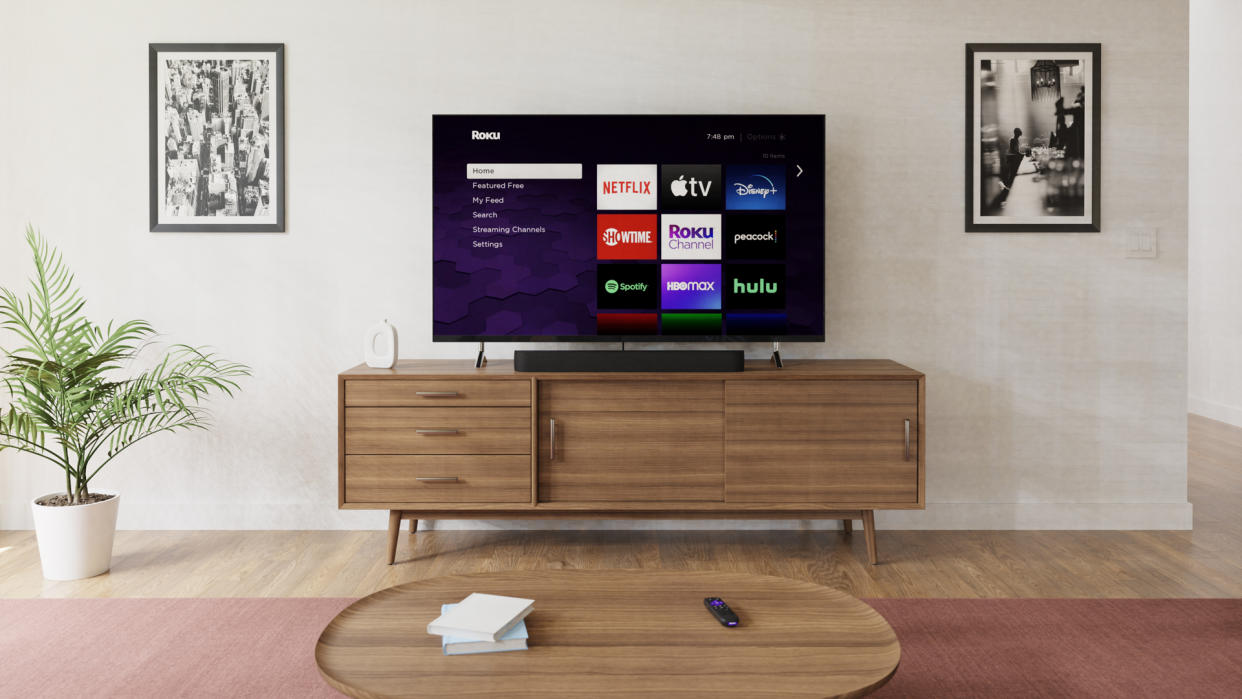Roku warns customers contract negotiations with YouTube have failed

Roku shared a progress update today on its ongoing contract dispute with Google related to its attempt to renew the carriage agreement for YouTube TV, Google's live TV streaming service. In April, Roku removed the YouTube TV app from its channel store so it was no longer available to new Roku subscribers, but took steps to ensure that existing subscribers could continue to use the service. Today, Roku says it has still not been able to come to a deal with Google, and warns customers that Google could choose to remove YouTube TV from the Roku platform.
YouTube, however, says the breakdown of the negotiations doesn't mean YouTube TV's existing customers on Roku will be impacted.
Though its partnership agreement will terminate in December, YouTube tells TechCrunch that exiting users on existing Roku devices will still be able to use both YouTube TV and the YouTube app. However, new Roku devices won't be able to carry either of the apps, it said.
Roku earlier this year made the details of its contract dispute public, saying that Google had been asking for special treatment with regard to how its services are integrated into Roku's operating system. While the agreement under discussion is related to YouTube TV, Google was also asking for preferential ranking of YouTube content in Roku's search results and permissions to override default settings when the YouTube app is open, it said. For instance, if a Roku customer had YouTube open and used voice search to ask for music, Google wanted YouTube Music to play the request, even if the customer had set Pandora as their preferred music app.
Roku also alleged earlier this year that Google was asking for more data on Roku customers than it provides other developers, and said Google threatened to increase the hardware spec requirements for YouTube TV, which would ensure Roku's lower-end and more competitively priced players would not be able to access it.
Google has consistently pushed back on Roku's statements, saying it had not made requests to "access user data or interfere with search results." The company also shamed Roku for turning to customers in an attempt to sway the negotiations in its favor and said all its requests were about providing a good user experience.
Essentially, today's update is to let Roku's customers know that no progress has yet been made with the negotiations, and to alert them that Google could later take a more punitive action, if it chose. Roku may be right to warn customers that YouTube TV could one day be pulled from its platform, but it's also a risk to share that sort of information this close to the holiday shopping season when consumers are in the market for new streaming devices. (After all, Roku just released a pair of new Streaming Stick 4K devices and a refreshed Roku Ultra LT, a Walmart-exclusive version of its high-end player.)
That Roku would warn customers of a possibility of a removal that even Google says isn't yet happening is an indication of how dirty these negotiations have gotten.
Roku's arguments seem to largely boil down to what sort of rights it has to dictate how its own software works as the platform provider. That means determining how search results are displayed, what sort of data is shared with its app developers and how apps are meant to behave, according to its own guidelines.
These are the same sort of rules Apple and Google make for their own platforms. But although Roku is the platform in this scenario, it doesn't put itself on the side of the tech giants who are accused of abusing their monopoly power -- it paints itself as the victim, having to bow to Google's demands or risk losing access to Google's must-have apps, like YouTube and YouTube TV. And of course, Google competes directly with Roku via Chromecast.
But Roku is not some indie developer trying to fight back against tech giants who are trying to destroy its business. It's a multibillion-dollar company that's claimed a larger slice of the U.S. streaming market than Google's own Chromecast.
YouTube told TechCrunch it has been negotiating in good faith with Roku and alleges Roku is still making baseless claims that cause alarm among their mutual users. The company reiterated that it has made no requests to access user data or interfere with search results.
"Since our negotiations with Roku earlier this year, we’ve continued to work with them to find a resolution that benefits our mutual users," a YouTube spokesperson said.
"Roku has once again chosen to make unproductive and baseless claims rather than try to work constructively with us. Since we haven’t been able to continue our conversations in good faith, our partnership for all new Roku devices will unfortunately end on December 9. We are, however, giving Roku the ability to continue distributing both YouTube and YouTube TV apps to all existing users to make sure they are not impacted," they added.

